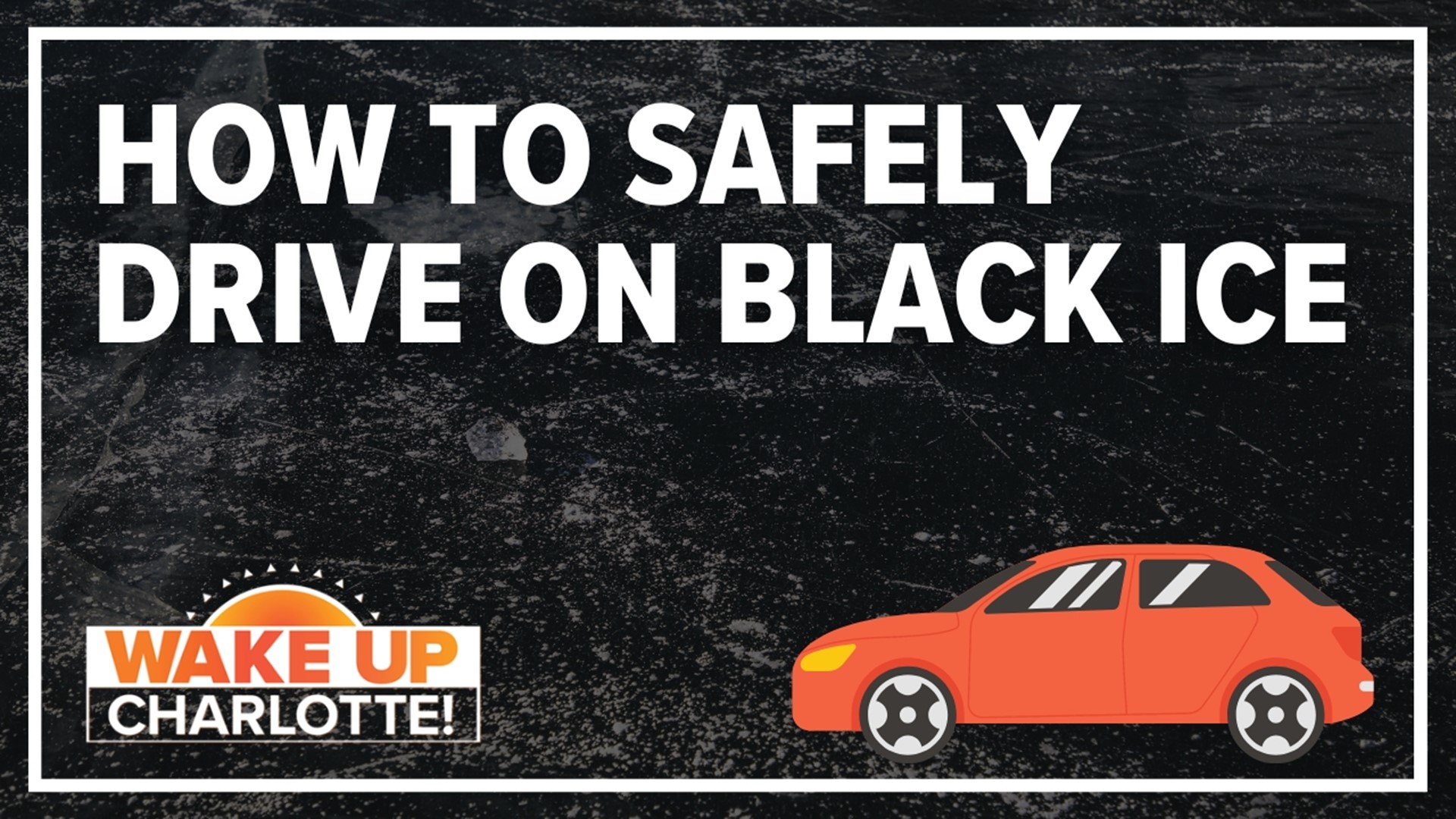CHARLOTTE, N.C. — There are winter advisories Tuesday morning for any counties above 3,500 feet. This includes Ashe, Avery, Burke, Caldwell and Watauga counties.
Overnight temperatures are plummeting this week, which means we could see more dangerous ice on the roadway.
It's time to think about the different precautions you should take while out on the roads, especially when black ice is involved.
MORE ON WCNC: How to combat Seasonal Affective Disorder
OUR SOURCE:
First, what is black ice?
"Black ice is just essentially a thin layer of ice on the ground. The reason why it gets the name black ice is cause it is so thin that people can see the road underneath it," Van Voorhes said.
That's why it can be so dangerous for drivers because you usually can't see it on the roads.
"It's usually caused by cold ground. Rain hitting it that's cold enough, or it actual freezing rain falling from the sky," Van Voorhes said.
Undercoffler tells WCNC when it starts to get colder, slow down.
MORE ON WCNC: Weather IQ: What to Know About Daylight Saving Time
"Always slow down, make sure you are leaving a lot of distance for you and the vehicles in front of you," Undercoffler said.
That way, you'll have more time to react if you hit a patch of black ice. However, what happens if you start to lose control on black ice?
"You don't want to jerk the wheel, you don't want to slam on the breaks, you want to stay calm, and you want to move slowly," Undercoffler said. "You want to steer into it. You want to steer into the direction you want the car to go steer into it go to the right."
Bridges, overpasses, and shaded areas are some of the most common areas for black ice to develop.
Contact Meghan Bragg at mbragg@wcnc.com and follow her on Facebook, Twitter and Instagram.
VERIFY is dedicated to helping the public distinguish between true and false information. The VERIFY team, with help from questions submitted by the audience, tracks the spread of stories or claims that need clarification or correction. Have something you want VERIFIED? Text us at 704-329-3600 or visit VERIFY.

